Conrad Benner on Why Philly Is a Special Place for Public Art and 6 Artists You Need to Know
The Fishtown native’s blog has been a go-to resource for Philly public and street art for more than a decade.

Conrad Benner’s Streets Dept blog has been a go-to resource for Philly’s street art / Photograph by Linette Messina Kielinski
If you geek out about murals and wheat-paste posters and graffiti, you know Conrad Benner. The Fishtown native’s Streets Dept blog has been a resource for public and street art for more than a decade.
His Instagram has 149,000 followers and counting; he’s got a podcast; he recently launched a print magazine for Patreon subscribers; and he’s developed partnerships with organizations including Visit Philly and the Philadelphia Flower Show to execute public art. We asked Benner what makes Philly’s public art scene so exemplary.
How is Philly’s public art scene different from those of other major cities?
Oftentimes, murals can be tools for developers to create districts and draw people to an area to boost its economy. Whether or not that’s the intent going in, it can result in the creation of a mural district. In Miami, for example, Wynwood Walls has become such a tourist attraction that it has created a gentrifying force for the neighborhood around it. In Detroit and Denver, they’re focused on bringing in outside talent — big names to create murals on walls in the city. In Philly, though, it’s less about bringing in gigantic names from across the world to create mural districts and tourist attractions. It’s more about creating beauty for neighborhoods and for people across the city. So the bulk of our murals are not concentrated in one area.
What are your hopes for the future of public art in Philly?
I hope it looks more like individual neighborhood groups coming together and finding funding to create murals on their own in their own neighborhoods, either with artists from the neighborhoods or with artists from outside. I think the more mural groups we have, the more people involved in our public art, the better.
What’s the outlook on graffiti in Philly?
Artists see a blank wall in their city that’s been abandoned by industry or by a property owner, and they view it as a place for art. That’s where you find some of the best art and some of the best graffiti, and people like it there. The city has about $1.3 million a year to spend on graffiti removal. That means it’s easy for you to complain about a piece of street art and the city will clean it up. When I see a piece of street art last for months or years on end, which I have seen many, many, many times, it means that no one’s complaining about it. What does that mean? It means that this is a value to people in their neighborhood. This is a value to people in the city.
Conrad Benner’s 6 Artists to Watch
Keep an eye out for non-commissioned works across the city from these daring artists, recommended by Conrad Benner.
Bob Will Reign
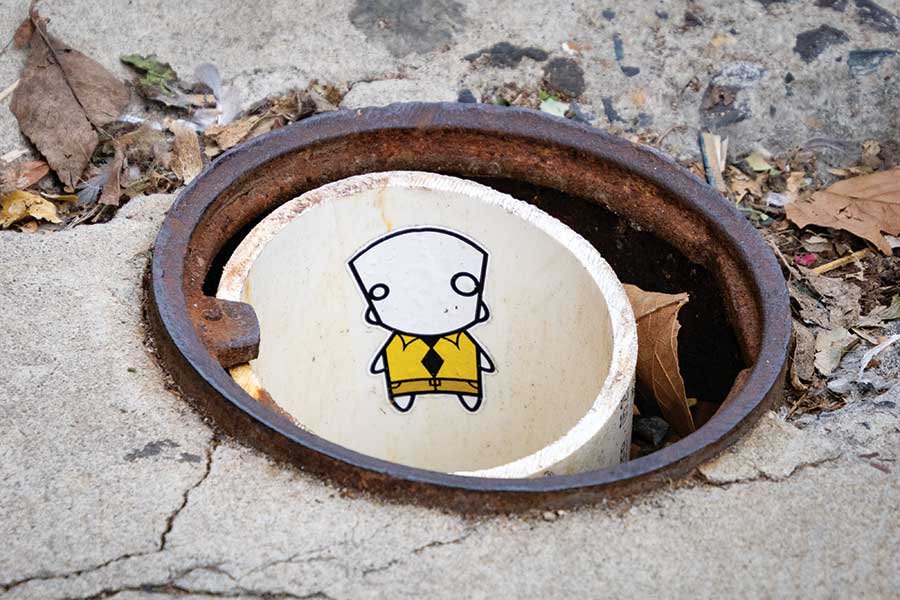
Sticker art by Bob Will Reign / via streetsdept.com
KNOWN FOR: Hand-drawn sticker art since 2003.
FOLLOW: @bobwillreign
Symone Salib
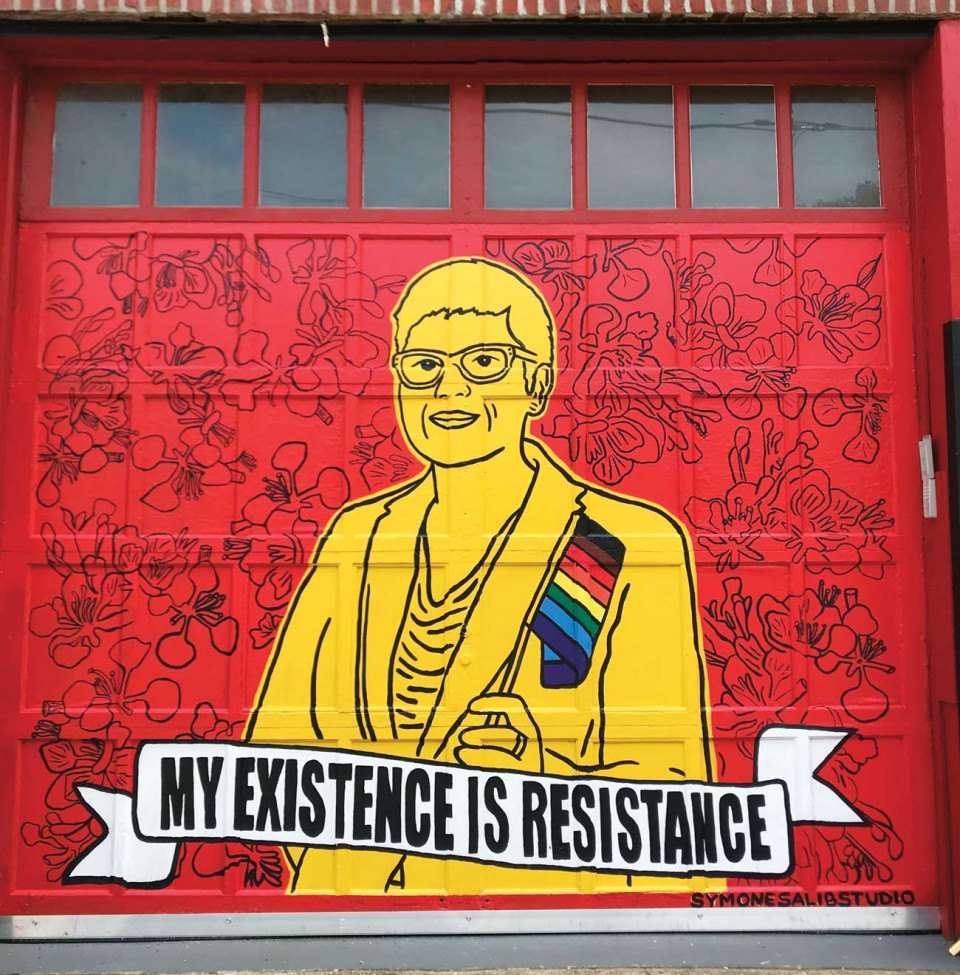
Art by Symone Salib / Photograph by Candy Gonzalez
KNOWN FOR: Wheat-paste portraits and quotes, often touching on political themes.
FOLLOW: @symonesalibstudio
Kid Hazo
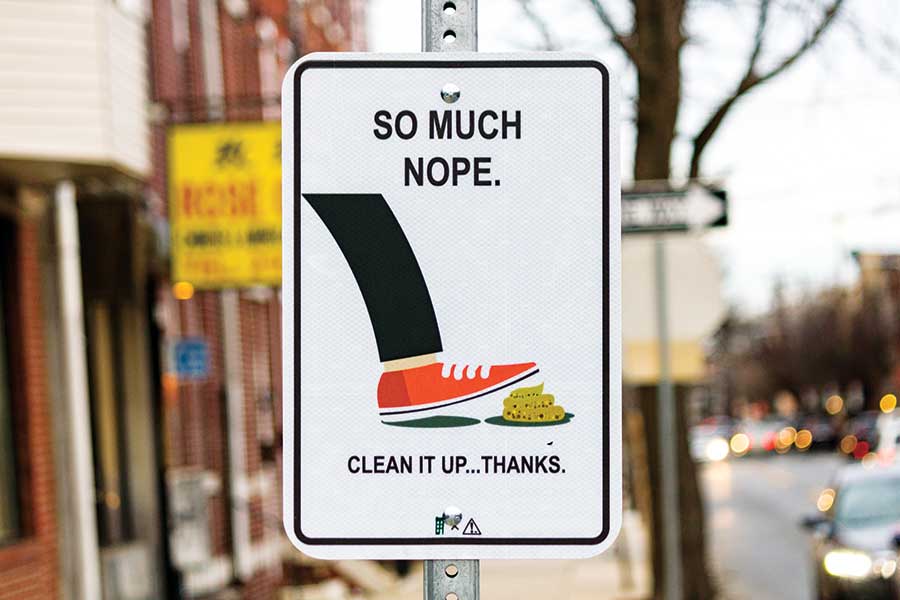
Sign by Kid Hazo / via streetsdept.com
KNOWN FOR: Pop-art-inspired comedic signs; being anonymous.
FOLLOW: @kidhazo
Olivia McKnight
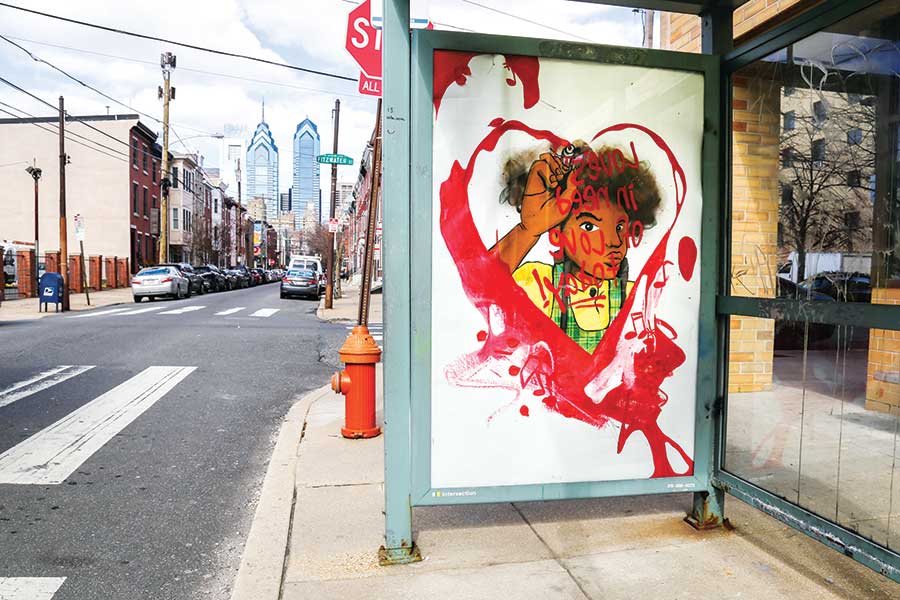
Art by Olivia McKnight / via streetsdept.com
KNOWN FOR: Colorful comic-book-style wheat-paste self-portraits.
FOLLOW: @oliviamcknight62
Marisa Velázquez-Rivas
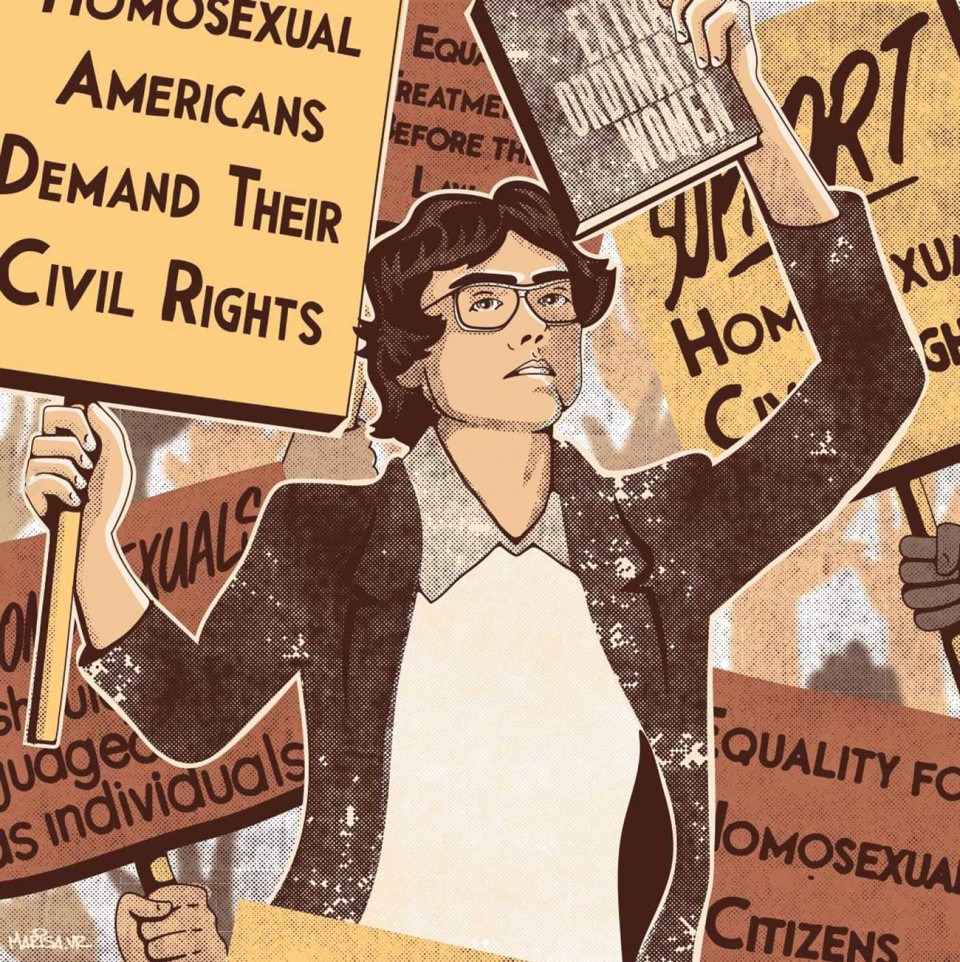
Art by Marisa Velázquez-Rivas
KNOWN FOR: Wheat-pasting personal drawings with queer and Latino themes.
FOLLOW: @marisa.vr
Stikman
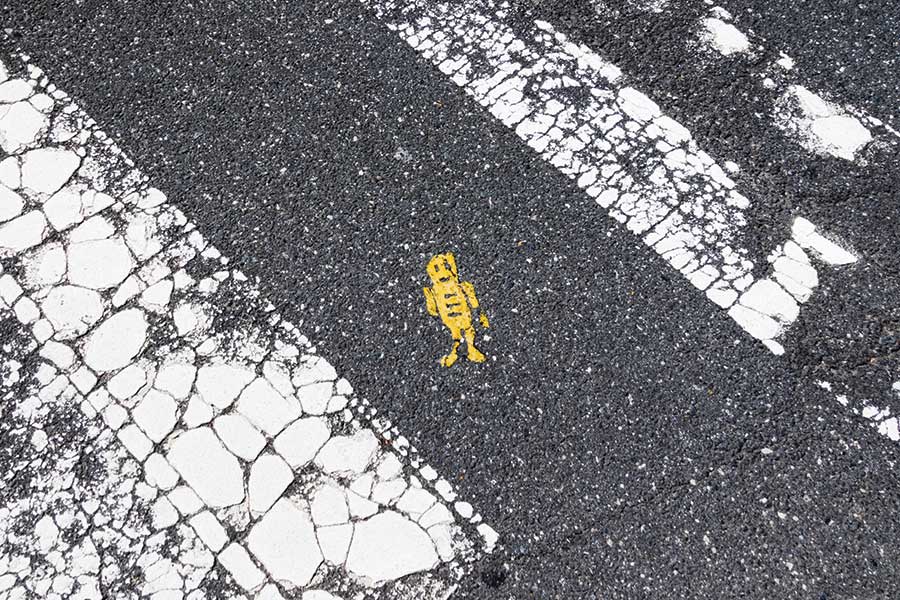
Stikman street art / via streetsdept.com
KNOWN FOR: Stick figures on streets.
FOLLOW: Look around; the mysterious artist isn’t on social media.
Published as “Street Smarts” in the May 2022 issue of Philadelphia magazine.


